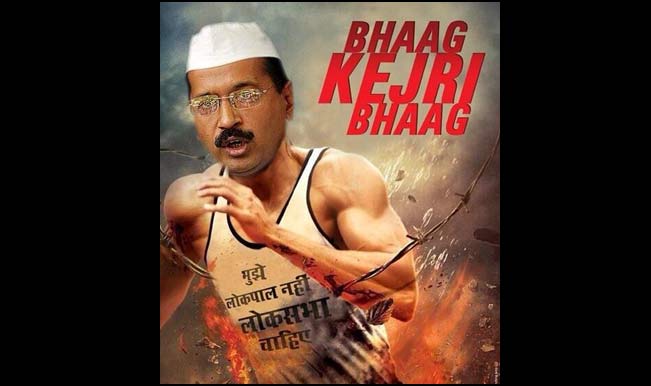The Aam Aadmi Party’s manifesto for the 2014 general election is akin to a tossed salad with a new dressing i.e. while it has a few predictable ingredients, the novelty lies in its stark ideas.
The 2014 manifesto is similar to the 2013 Delhi assembly election manifesto in that it focuses on ending corruption and decentralising political power by passing the Jan Lokpal and Swaraj bills. But it also promises sweeping electoral reforms, such as Right to Recall (candidates) and Right to Reject (candidates). It also wants to reduce the minimum age for candidates in assembly elections from the current 25 years to 21. And of course, it wants to check the flow of ‘black’ money into the country, especially during elections by scrapping an income tax provision that allows people donating less than Rs 20,000 to a political party to not furnish their details.
#AAPKaManifesto Arvind Kejriwal tosses up a mixed salad with their manifesto. Interesting points but implementation matters!— Economy Decoded (@EconomyDecoded) April 4, 2014
The manifesto also spells out the party’s plan to regulate the media — the fourth pillar of democracy, with which the party’s relationship is becoming sour. “Transparency and disclosure of ownership of media houses, their loans, share holding, as well as the political affiliations of owners and editors,” the manifesto states. “Self-regulation has failed to serve the purpose so a new policy would be framed to regulate media organisations by involving all the stakeholders.”
The AAP manifesto doesn’t give away much about the party’s economic principles; it said that foreign direct investment would be decided sector-wise. “We are not against industries or business, but we are against crony capitalism. We believe that unless industries don’t flourish, we wont be able generate jobs,” said national convenor Arvind Kejriwal, while releasing the 26-page document. “But, we are against the system of contract labourers because it violates basic human rights.”
The manifesto is equally quiet on the issue of foreign policy. While it says that Kashmir, listed under internal security, is an integral part of India, it promises a zero-tolerance policy toward cross-border terrorism and seeks to maintain friendly relations with all countries. But it spells out a new idea to tackle illegal immigration — development of border areas as a high-economic engagement zones.
The issue of women’s security also finds space in the manifesto. “Safety for citizens is a huge responsibility for us. Since the Delhi chief minister sat on a protest to support women’s safety, it shows how serious we are,” said Kejriwal, referring to his government’s protest in January.
The manifesto also promises to reform the country’s education system by bringing government schools at par with private schools, establishing more IITs and AIIMS-like institutions. “Our government will double the number of courts in the next five years. We will create a judicial appointment commission to make the selection process of judges more transparent,” Kejriwal said.




































